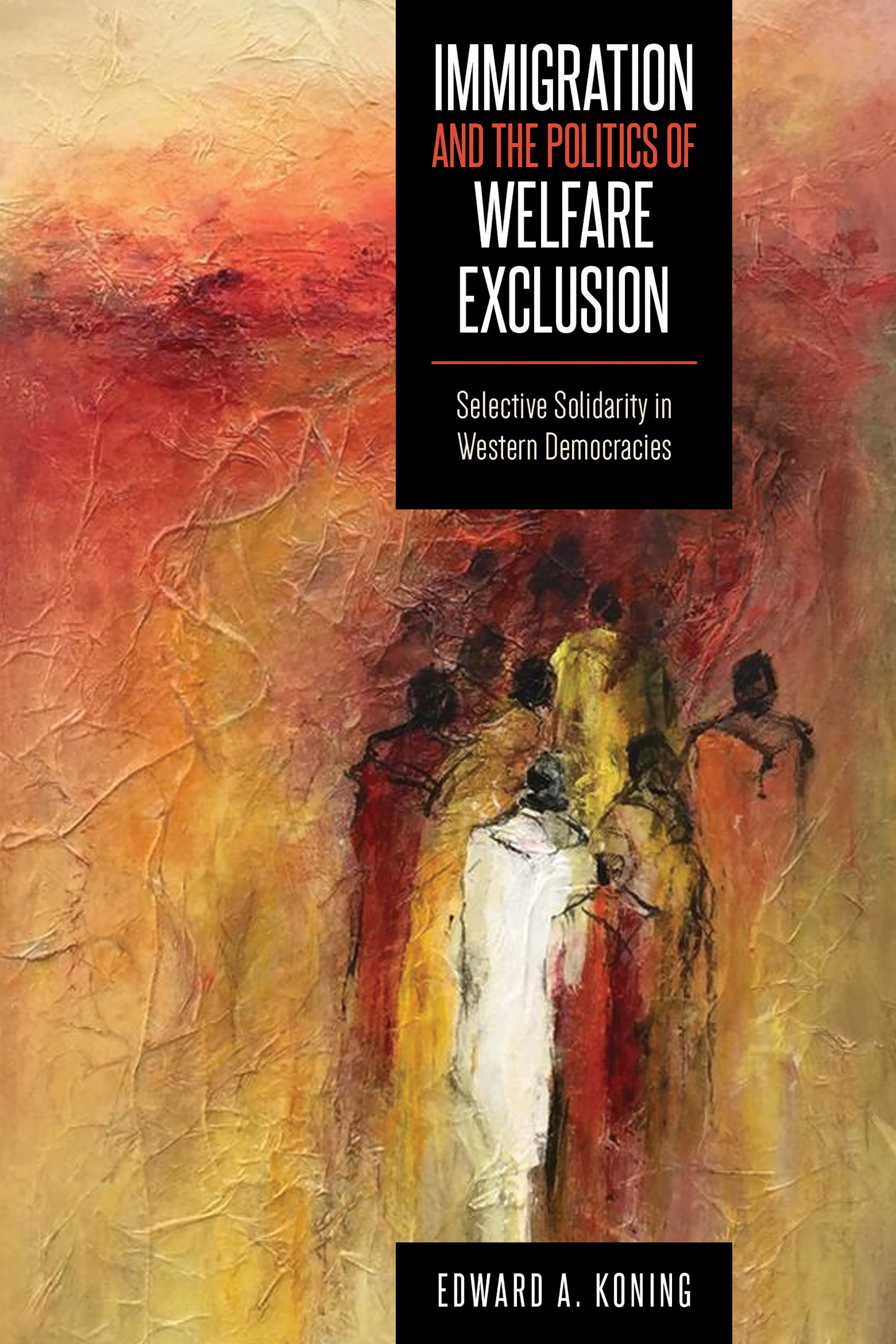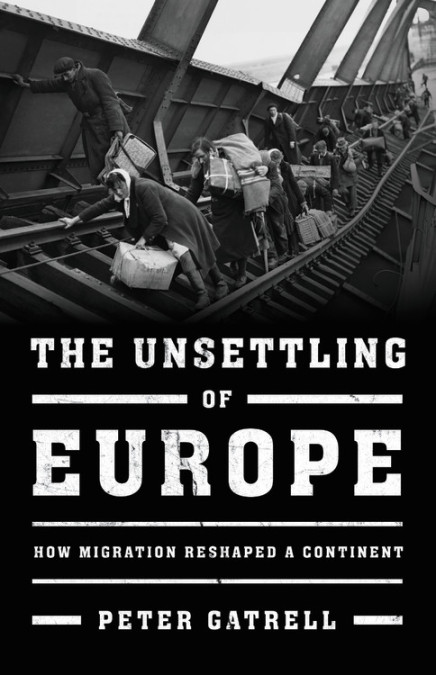
 Immigration and the Politics of Welfare Exclusion: Selective Solidarity in Western Democracies
Immigration and the Politics of Welfare Exclusion: Selective Solidarity in Western Democracies
By Edward Anthony Koning
Publisher: University of Toronto Press
Recommended by Hélène B. Ducros
How can the relationship between immigration and the welfare state be theorized passed the “Progressive Dilemma” that projects the lack of support for redistributive policies in the face of increased diversity induced by in-migration? With this important book, Edward Anthony Koning fills a gap in a literature that has incompletely addressed the social rights of immigrants and their access to services in countries of arrival. As he identifies factors driving a recent shift towards exclusion of immigrants from welfare benefits in many places around the world, he also addresses the ways in which economic rationales have been used to validate this exclusion in three Global North nations (Canada, the Netherlands, and Sweden). Successfully discrediting the view that immigrants represent “lazy welfare cheats” (6) who cost the system, Koning demonstrates that immigrant-excluding welfare reforms are not supported by economic evidence. His research reveals that although welfare exclusion may be legitimized and accepted through politicians’ economic rhetoric, it is rather resistance to the Other that breaks down social solidarity schemes, proving that it is less about economic realities than about ideology and a rejection of multiculturalism. Solidarity becomes “selective” because it is not about less welfare state per se, but rather it is grounded in an objection to the rights of immigrants to partake in it.
Koning steps back from asking what social benefits immigrants should receive to instead compare how solidarity policies come about (or not) in the three case studies, which he chose with care to represent different historical models of the welfare state, conceptions of national identity and tolerance level towards immigrants, and the relative place of immigration in public debates. Methodologically, the book offers a rich theoretical and empirical combined approach to the study of immigrants’ rights, centered on a skillful analysis that integrates both qualitative and quantitative data. Not only does the book contribute a better understanding of the design of immigrants’ social rights regimes, but it also highlights that a divisive political context matters more in getting people to favor restrictive policies than economic landscapes. Koning clearly settles that the scope of social rights reforms derives from electoral instrumentalization and party politics compromises, and that these reforms have ramifications in other arenas of public life that mere statistical analysis cannot fully convey. The book opens the way for similar studies needed in other Western nations, for example those of Southern Europe. Geographers, political scientists, economists, sociologists, and policy-makers focusing on migration should all take notice of Koning’s research, whatever their geographic area of concern.

The Unsettling of Europe: How Migration Reshaped a Continent
By Peter Gatrell
Publisher: Basic Books
Recommended by Louie Dean Valencia-García
Peter Gatrell’s The Unsettling of Europe: How Migration Reshaped a Continent traces the history of major events in postwar Europe through the lens of migration. The economic historian moves between micro and macro histories with relative ease—giving well-researched examples throughout his comprehensive 550-page book. While numerous books in recent years have taken on the history of refuge and exile in Europe, Gatrell’s is possibly amongst the most ambitious of such histories. For Gatrell, “Migration was an integral part of the history of European empire and decolonization.” He argues the migration of Europeans to “buttress colonial rule and exploit overseas possessions” created the conditions for a “violent displacement of indigenous people, particularly when they challenged imperial rule.” Gatrell further understands colonization as a form of migration (albeit violent) which created the conditions for migration in the postcolonial world.
Gatrell divides his study into five parts, studying migration through the lenses of rebuilding Europe after the Second World War and during the Cold War, decolonization, the economic turmoil of the 1970s, the collapse of the Soviet Union, and the recent migration crisis and the Arab Spring. Gatrell’s ability to analyze the history of displacement in Eastern Europe is particularly excellent. Gatrell pushes back hard on historian Walter Laqueur’s dictum that Europe’s “native population is becoming strangers in their own homelands.” Laqueur claimed “new immigrants” refuse to “adapt” or “integrate.” In contrast, Gatrell argues migration in Europe today is both reiterative and a continuous trend that has been going on for decades. In fact, some historians might argue this is inherent to the human condition. Today, issues of migration are connected to issues related to identity, security, economics, and climate change. Still, as Gatrell’s ample history shows us, in many ways, the rhetoric and problems surrounding migration are long-standing ones. Simply put, The Unsettling of Europe not only is a fundamental book for those studying contemporary European history and politics, but it also places the postcolonial world inside of European history in a way that does not treat migrants as “Other,” and serves as a clarion call for historians that follow.




